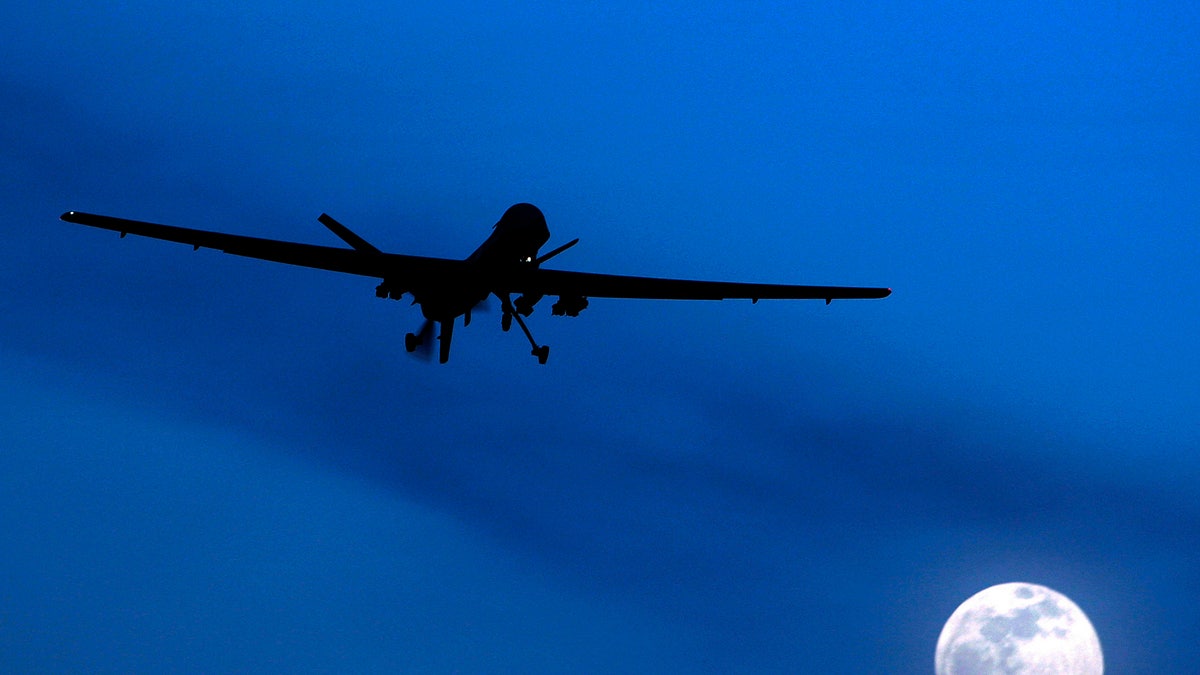
Texas students successfully hijacked a drone in a university experiment. (AP)
Usama bin Laden has been killed. The U.S. is poised to begin withdrawing troops from Afghanistan. And the Obama administration's shift in counterterrorism strategy from land wars to precision strikes and raids is raising concerns that the White House has adopted a policy of targeting killings for terror suspects.
With no new detainees at the U.S. military prison at Guantanamo Bay since March 2008, a top military commander told Congress recently that there is no clear policy for dealing with suspected terrorist leaders who are captured overseas.
In many cases, the suspects are taken to a ship offshore until a decision is approved by the White House.
Vice Adm. William McRaven, the commander of the Navy SEALs team that killed Usama bin Laden, said under questioning at a congressional testimony that the longest the U.S. can keep a suspect on the ship depends on whether the suspect can be prosecuted in a U.S. court or returned to a third-party country.
"If we can't do either one of those, then we'll release the individual," McRaven said in response to questioning by Sen. Lindsey Graham, R-S.C., "And that becomes the unenviable option, but it is an option."
With no consistent policy on detention or prosecution, congressional and intelligence sources told Fox News that the preemptive option has apparently become the "kill" option.
Under President Obama's watch, multiple Al Qaeda operatives have been killed by the CIA or military strikes, including Saleh ali Nabhan, a suspected planner of the U.S. Embassy bombings in East Africa in 1998; Sheikh Saeed al Masri, Al Qaeda's top leader in Afghanistan, and most recently, Ilyas Kashmiri, an operational commander behind the commando-style attacks in Mumbai, who was reportedly killed in Pakistan.
At a news conference last week, Obama insisted that gaining intelligence remained the priority.
"Anytime we initiate a mission like this, our top priorities are making sure this person is not able to carry out attacks against the United States and that we're able to obtain actionable intelligence from those individuals," he said. "And so that mitigates this danger that you're suggesting that our main goal is going to be to kill these individuals as opposed to potentially capturing them."
But with no new high-value captures, some analysts say intelligence is the long-term casualty.
"This is an issue the administration has been reluctant to deal with," said Lt. Col. Anthony Shaffer, a senior fellow at the Center for Advanced Defense Studies and an Army Reserve officer who served in Afghanistan in 2003.
"So because of the reluctancy of the administration, you have essentially pushed this program into an area where you have to either kill someone or let them go."
White House counterterrorism chief John Brennan unveiled last week the administration's new national strategy – a doctrine two years in the making. The doctrine acknowledges the growing threat of terrorism at home, including Al Qaeda's attempts to recruit and attack inside the United States, Brennan said.
He told a Washington audience Wednesday that more resources would be spent on the fight at home to spot would-be militants and their recruiters.
"Our best offense won't always be deploying large armies abroad, but delivering targeted, surgical pressure to the groups that threaten us," he said at the Johns Hopkins School of Advanced International Studies.
The Associated Press contributed to this report.




